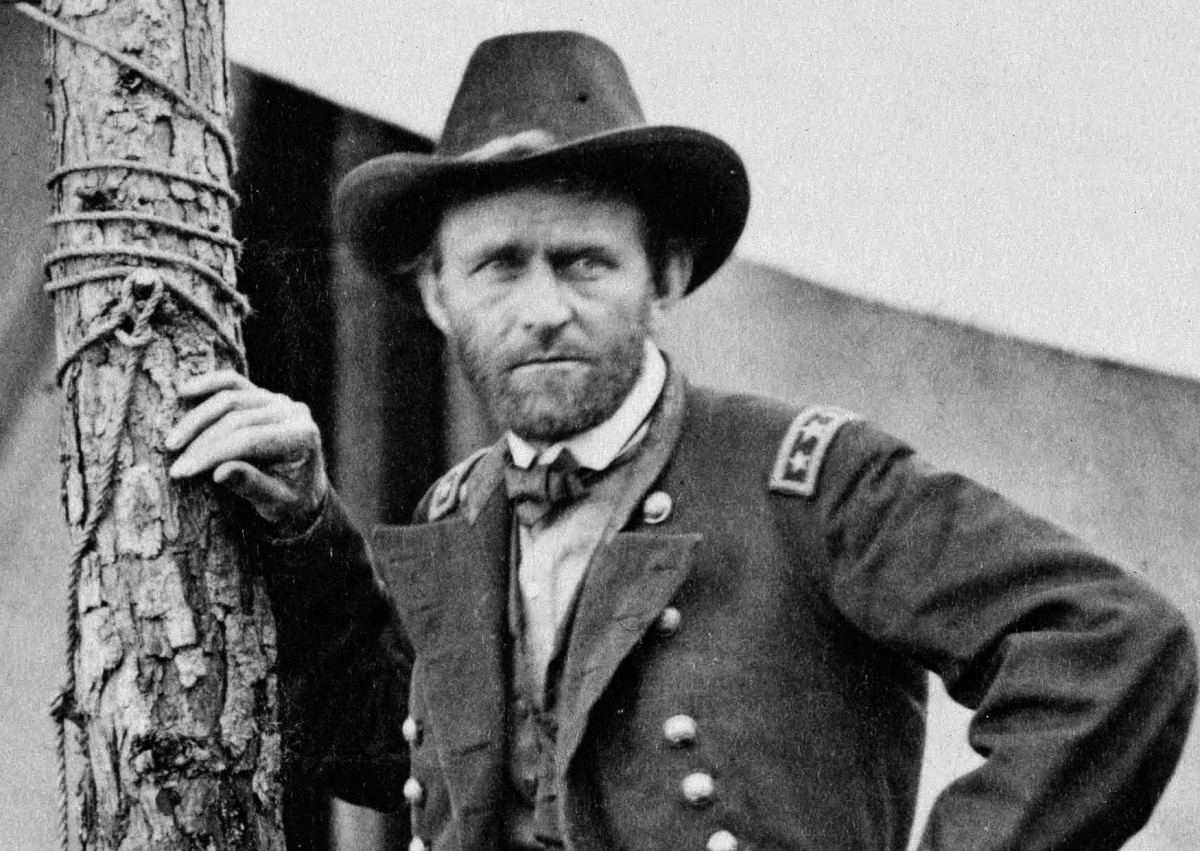In the late 19th Century, the three individuals most widely regarded as the nation’s greatest presidents were George Washington, Abraham Lincoln, and… Ulysses S. Grant?!
Ulysses S. Grant: Time for a New Look?
Yep. Grant might seem out of place on this list. Since 1885, Grant’s reputation has waned. But a full accounting of his service to this country might turn that around.
To understand the depth of respect Grant enjoyed in his day, consider this: On August 8, 1885, more than 1.5 million people attended his New York City funeral. Now consider that, at that time, the city’s population was only 1.9 million. Three presidents attended. The funeral procession stretched for seven miles and took five hours to reach the burial site. Grant was ultimately interred in what is the largest mausoleum in North America, “Grant’s Tomb.”
Thirty-seven years later, on the 100th anniversary of his birthday, April 27, 1922, the nation again celebrated Grant, by proclamation of President Warren Harding. A parade down Pennsylvania Avenue concluded with the unveiling of a majestic equestrian statue at the foot of the Capitol, directly aligned on the National Mall with the Washington Monument and the Lincoln Memorial. The largest of its kind in the United States, the statue depicts Grant at two and one-half times life size.
Yet last year, Grant’s 200th birthday anniversary passed without national notice. Why the decline in Grant’s reputation? Grant biographer, William B. Hesseltine thinks it’s just because Grant’s enemies were better writers than his friends. Others speculate that the pro-Confederate Lost Cause movement in the early 20th Century swayed popular opinion against him. According to that movement, Grant was a drunk, an incompetent butcher, and presided over a corrupt presidential administration.
But let’s go deeper.
Ron Chernow’s biography, “Grant,” says Grant was indeed an alcoholic who resorted to binge drinking when he was bored or missing his wife, Julia. But Chernow also notes that Grant never drank when there was a battle imminent. Later in life, when Grant ascended to the presidency, he quit drinking cold turkey—a tremendous display of self-discipline.
What about allegations Grant was an indifferent “butcher” as a general? That narrative stems primarily from a single battle: Cold Harbor (June 3, 1864). There, more than 7,000 Union soldiers were killed or wounded in 30 minutes while assaulting a prepared position. Grant himself regretted the attack, writing in his memoir, “I have always regretted that the very last assault at Cold Harbor was ever made.” But Cold Harbor was a rare failure for Grant. Until Grant assumed command of the Army, victory was never assured. After he took over, it was never really in doubt.
His battlefield successes, born of his leadership, turned the tide. As to the allegations of corruption, his administration was indeed plagued by multiple scandals: nepotism, gold speculation, postal graft, diversion of tax revenue, and more. Some of Grant’s closest advisors were involved. But Grant himself was never personally implicated nor involved.
The scandals reflect that Grant trusted friends and colleagues to a fault. If the worst that can be said of someone is that they were too trusting of friends, most could accept that criticism.
What critics usually fail to mention is that, as president, Grant made it his personal mission to crush the Ku Klux Klan. He sent Army troops to Southern states to enforce reconstruction laws. Grant proudly signed the 15th Amendment granting African American men the right to vote, writing at the time: “the adoption of the 15th amendment to the Constitution completes the greatest civil change and constitutes the most important event that has occurred since the nation came into life.” Historian John Marszalek wrote of Grant, “You have to go almost to Lyndon Johnson to find a president who tried to do as much to ensure black people found freedom.” Similarly, Grant fought for Native American rights to a degree that no other president had.
But perhaps the greatest testimony to Grant arises from the manner he departed life. Returning from an overseas trip, Grant found he had been swindled out of his life savings by a friend. Not just broke, he was deeply in debt.
At about the same time, Grant learned he was dying of throat cancer. Faced with the prospect of leaving his wife Julia penniless, Grant undertook to write his memoirs to raise money. Despite being in unspeakable agony, unable to swallow or speak near the end, he persevered, writing every day. Seven days after he finally put down his pen—his memoirs complete—he died in 1885 at age 63. His memoir went on to set sales records, and Julia never wanted for money.
Born into modest circumstances and dealt multiple setbacks through his life, Grant overcame them all to ably serve as the architect of President Lincoln’s victory and as a dedicated warrior for civil rights for all.
It’s appropriate to celebrate this humble American who helped save the nation — and advance freedom and justice for millions.
Thomas W. Spoehr, a retired Army lieutenant general, is director of the Center for National Defense at The Heritage Foundation.
From 19FortyFive
The Second American Civil War Has Begun

